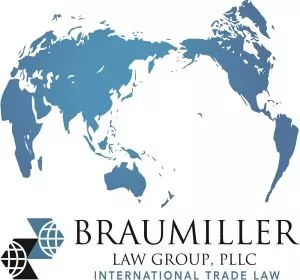- in South America
- in South America
- with readers working within the Business & Consumer Services industries
- within Corporate/Commercial Law, Energy and Natural Resources and Technology topic(s)
On October 14, 2025, the Mexican Senate (reviewing chamber) approved the proposed decree to reform the Mexican Customs Law (Ley Aduanera), originally approved by Mexican Congress (chamber of origin). The proposal was initially submitted to Congress by President Claudia Sheinbaum. The reform has been returned to Congress for final constitutional review, specifically to confirm and formalize the effective date of entry into force, currently proposed for January 1, 2026. Final approval on this point remains pending.
In general, main amendments include:
- Creation of a customs council to oversee customs brokers´ licenses.
- Concurrent authority for post clearance audits granted to SAT and ANAM.
- Expanded digital surveillance and real-time analysis of inventory control and Customs operations.
- Customs Broker's license will be limited to 20-year validity, renewed upon compliance.
- Joint responsibility of Customs brokers and clients for information submitted to customs.
- Stricter control over the temporary importation Customs regimes.
- Higher penalties for smuggling, false declaration and fraud among other violations.
Some of the arguments in favor of the reforms are that it establishes a modern, transparent and professional Customs framework, promotes traceability and consumer safety, aims to prevent undervaluation and counterfeit imports, facilitates the identification of violations such as evasion and contraband and strengthens Mexico's tax capacity for a timely and effective revenue collection.
Some of the opposition concerns to the reform are that it could increase import costs, create delays in trade flows and bottlenecks, discourage professional participation of Mexican Customs brokers, and encourage informal practices, due to an overregulation, increased documentation requirements, shifting the full compliance burden entirely to companies. They also mention that there is a failure to address corruption within Customs authorities and the imposition of excessive fines of up to 300% of the operation's value, among others.
While awaiting final Congressional approval, some recommended actions for companies are:
- Redefine legal responsibilities and risk exposure of your Mexican Customs brokers.
- Adapt compliance and documentation processes to align with stricter verification standards expected from Mexican authorities.
- Implement digital controls to enhance supply chain traceability.
- Incorporate risk management and audit oversight into your Customs operations.
- Prepare for tighter scrutiny and digital audits.
Check out our new Digital Magazine Get the inside scoop on the Braumiller Law Group & Braumiller Consulting Group "peeps." Expertise in International Trade Compliance.
The content of this article is intended to provide a general guide to the subject matter. Specialist advice should be sought about your specific circumstances.


